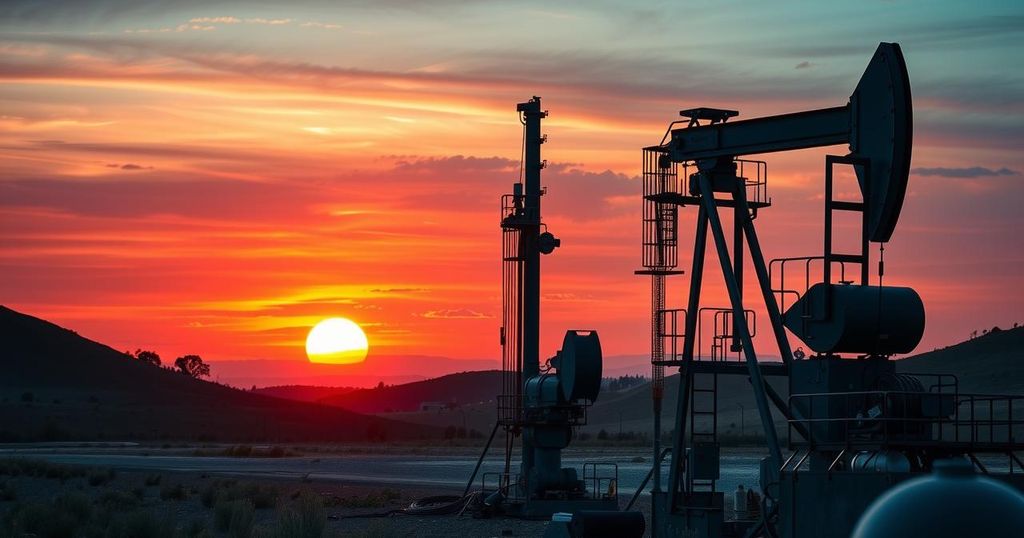Argentina’s Vaca Muerta shale basin holds significant potential but faces challenges from unfavorable regulations and economic instability that hinder development. Despite these issues, major oil companies like Shell and Chevron continue to invest in the region, raising questions about the future of shale exploration in Argentina.
Argentina possesses significant shale resources, particularly in the Vaca Muerta basin, which has the potential to be a major player in the global energy market. Although horizontal drilling began in this region roughly ten years ago, its expansion has been hindered by a suite of unfavorable regulations. These include capital and currency controls, import-export taxes, and government interventions in oil pricing, which have stymied investor confidence and economic stability.
Moreover, Argentina’s high inflation and unstable economy contribute to barriers in securing the capital necessary for shale development. Large corporations such as Exxon Mobil have already divested from their Argentine ventures, indicating the challenges faced in this market. Notwithstanding, companies like Shell and Chevron maintain their interests in the Vaca Muerta basin, suggesting some level of strategic optimism for potential future growth.
The overarching question remains whether pro-business regulatory changes will sufficiently stimulate shale exploration and investment in Argentina. As the U.S. shale basins experience dwindling production from their most promising wells, Argentina’s Vaca Muerta could gain significance as a valuable alternative energy source in the near future if regulatory hurdles can be effectively mitigated.
In summary, Argentina’s Vaca Muerta presents a significant opportunity for shale resource development, albeit currently impeded by several regulatory and economic factors. While challenges persist—including high inflation and unfavorable regulations—retained interests from major oil companies suggest some potential for growth. Whether Argentina can successfully attract investment to harness its shale capabilities will likely depend on necessary regulatory reforms that favor market stability and investor confidence.
Original Source: www.wsj.com






